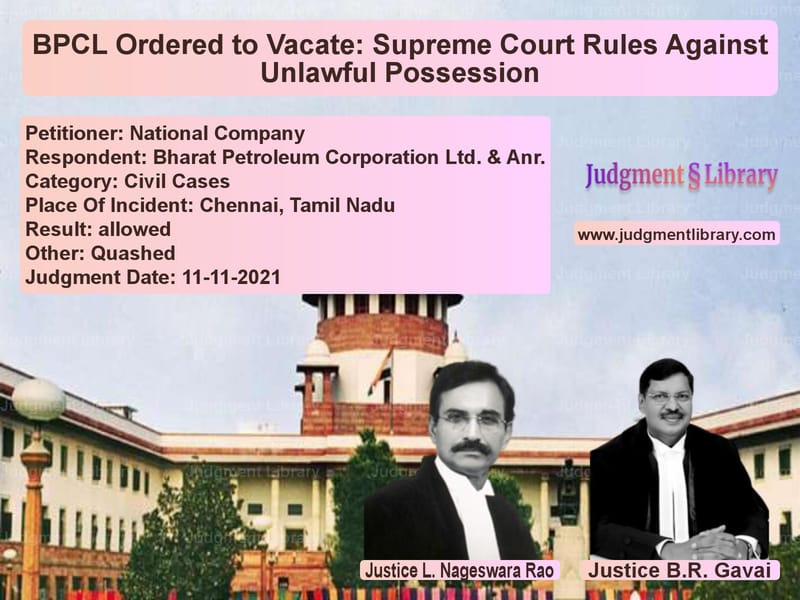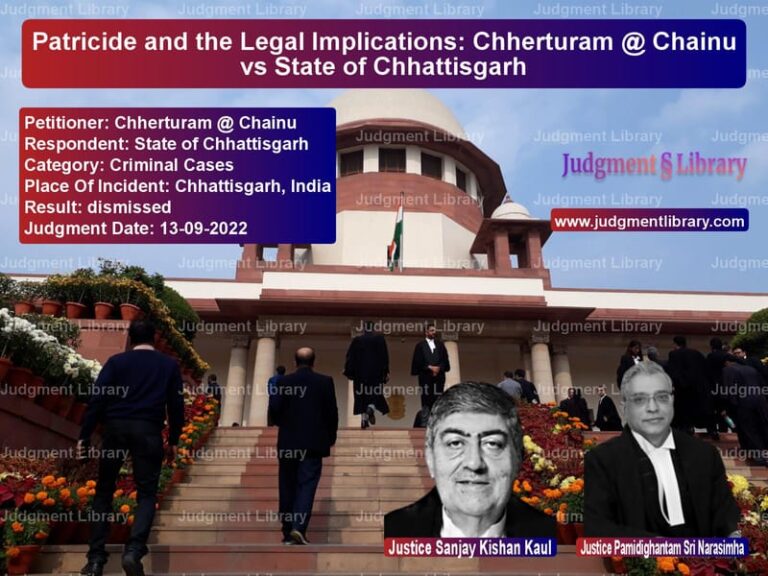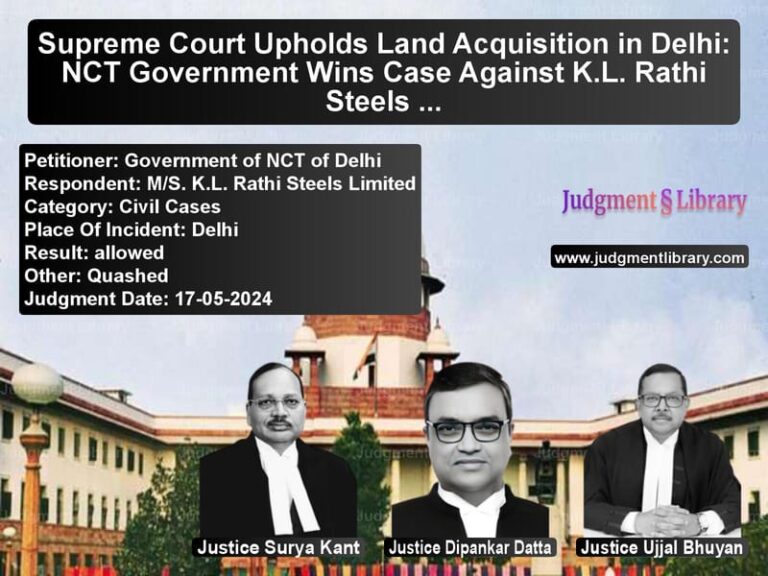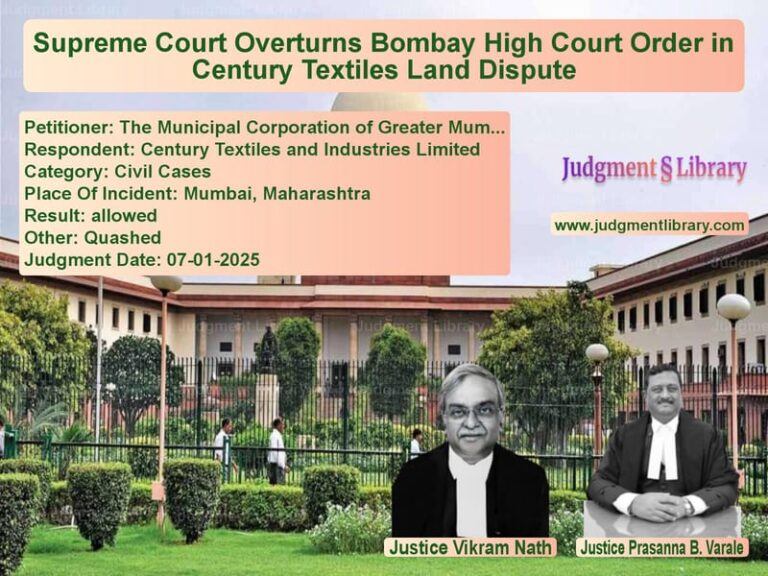BPCL Ordered to Vacate: Supreme Court Rules Against Unlawful Possession
The Supreme Court of India recently ruled in favor of National Company, directing Bharat Petroleum Corporation Ltd. (BPCL) to vacate a leased property and pay market rent for unauthorized occupation. The ruling, delivered by a bench comprising L. Nageswara Rao and B.R. Gavai, highlights the principle that government entities cannot continue to occupy private land without a valid lease.
The case revolved around a lease dispute concerning a petrol pump located at Old No.320, New No.469, Anna Salai, Nandanam, Chennai. The lease expired in 2009, but BPCL continued its operations on the premises without formal renewal, leading the property owner to seek legal remedies.
Background of the Case
The property was originally leased to BPCL’s predecessor, Burmah Shell Oil Storage and Distributing Company of India, in 1960. The lease was renewed multiple times, with the final agreement expiring on December 31, 2009. Despite several eviction notices, BPCL refused to vacate.
Petitioner’s Arguments
The petitioner, National Company, argued:
- BPCL had no legal right to continue occupying the property beyond 2009.
- BPCL had unlawfully sub-let the premises to a third party, M/s Vijaya Auto Services.
- As a statutory corporation under Article 12 of the Constitution, BPCL’s conduct was “unbecoming” and against fair business practices.
BPCL’s Defense
BPCL contended:
- The matter involved disputed facts and should not be adjudicated through a writ petition under Article 226 of the Constitution.
- It was entitled to protection under the Madras City Tenants Protection Act, 1921.
- The possession remained with BPCL, and the dealer was only an operational licensee.
Supreme Court’s Observations
The Supreme Court rejected BPCL’s arguments and held:
“The conduct of BPCL in continuing occupation without paying rent is unbecoming of a statutory corporation.”
The Court reaffirmed that for protection under the Madras City Tenants Protection Act, the tenant must be in actual physical possession. BPCL had sub-let the premises, making it ineligible for such protection.
Final Judgment
The Court issued the following directives:
- BPCL must vacate the premises within three months.
- BPCL must pay arrears of market rent from December 31, 2009, until possession is handed over.
- BPCL must also pay ₹1,00,000 as legal costs to National Company.
This ruling establishes a critical precedent on tenant rights and the obligations of government entities when occupying private properties.
Petitioner Name: National Company.Respondent Name: Bharat Petroleum Corporation Ltd. & Anr..Judgment By: Justice L. Nageswara Rao, Justice B.R. Gavai.Place Of Incident: Chennai, Tamil Nadu.Judgment Date: 11-11-2021.
Don’t miss out on the full details! Download the complete judgment in PDF format below and gain valuable insights instantly!
Download Judgment: national-company-vs-bharat-petroleum-cor-supreme-court-of-india-judgment-dated-11-11-2021.pdf
Directly Download Judgment: Directly download this Judgment
See all petitions in Landlord-Tenant Disputes
See all petitions in Specific Performance
See all petitions in Damages and Compensation
See all petitions in Judgment by L. Nageswara Rao
See all petitions in Judgment by B R Gavai
See all petitions in allowed
See all petitions in Quashed
See all petitions in supreme court of India judgments November 2021
See all petitions in 2021 judgments
See all posts in Civil Cases Category
See all allowed petitions in Civil Cases Category
See all Dismissed petitions in Civil Cases Category
See all partially allowed petitions in Civil Cases Category







